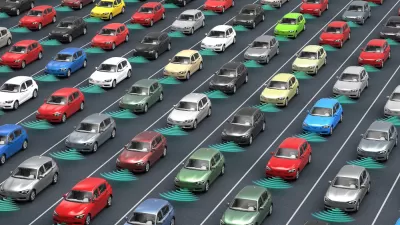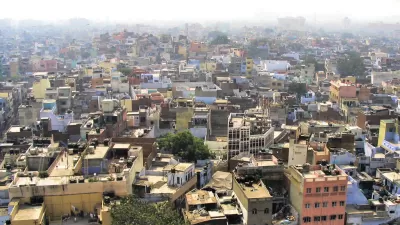Rapid urbanization in India will create unplanned cities with poor quality of life unless steps are taken to integrate urban design and planning with governance structures, and primitive planning methods are revamped with the latest technology.
The number of cities as well as the number of people living in India's cities is rising steadily, and it is estimated that around 700 million people will be living in the country's urban centres by 2050. It is inevitable that many villages and small towns will expand to become large cities but is that enough? What is going to guide this process?
"Unfortunately, there are no proper plans in place for these new settlements as well as for the existing cities that are witnessing massive urban sprawls," laments Ranjit Sabikhi, a well known architect and urbanist from India.
He stresses the importance of transforming the outdated master-planning process which is still carried in 10-20 year intervals. City plans must be more flexible so that they can be modified with the fast changing times and needs, argues Sabikhi. The implementation of the plans needs to be monitored more closely making use of the latest technology and skills.
Sabikhi insists that as important projection and planning is for these cities, so is urban design which defines the quality of urban space and brings together multiple professions related to making of cities. It is essential that urban planning and urban design become integrated with the governance structure at state as well as city level. Furthermore, the participation of local communities in planning decisions for their own neighbourhoods and cities must be promoted to enhance a sense of ownership and improve the quality of life. One has to agree with the author that unless these points are taken care of, the future of India's cities is not only bleak but extremely haphazard and chaotic
Thanks to Kanak Tiwari
FULL STORY: Designing the future

Maui's Vacation Rental Debate Turns Ugly
Verbal attacks, misinformation campaigns and fistfights plague a high-stakes debate to convert thousands of vacation rentals into long-term housing.

Planetizen Federal Action Tracker
A weekly monitor of how Trump’s orders and actions are impacting planners and planning in America.

In Urban Planning, AI Prompting Could be the New Design Thinking
Creativity has long been key to great urban design. What if we see AI as our new creative partner?

King County Supportive Housing Program Offers Hope for Unhoused Residents
The county is taking a ‘Housing First’ approach that prioritizes getting people into housing, then offering wraparound supportive services.

Researchers Use AI to Get Clearer Picture of US Housing
Analysts are using artificial intelligence to supercharge their research by allowing them to comb through data faster. Though these AI tools can be error prone, they save time and housing researchers are optimistic about the future.

Making Shared Micromobility More Inclusive
Cities and shared mobility system operators can do more to include people with disabilities in planning and operations, per a new report.
Urban Design for Planners 1: Software Tools
This six-course series explores essential urban design concepts using open source software and equips planners with the tools they need to participate fully in the urban design process.
Planning for Universal Design
Learn the tools for implementing Universal Design in planning regulations.
planning NEXT
Appalachian Highlands Housing Partners
Mpact (founded as Rail~Volution)
City of Camden Redevelopment Agency
City of Astoria
City of Portland
City of Laramie





























